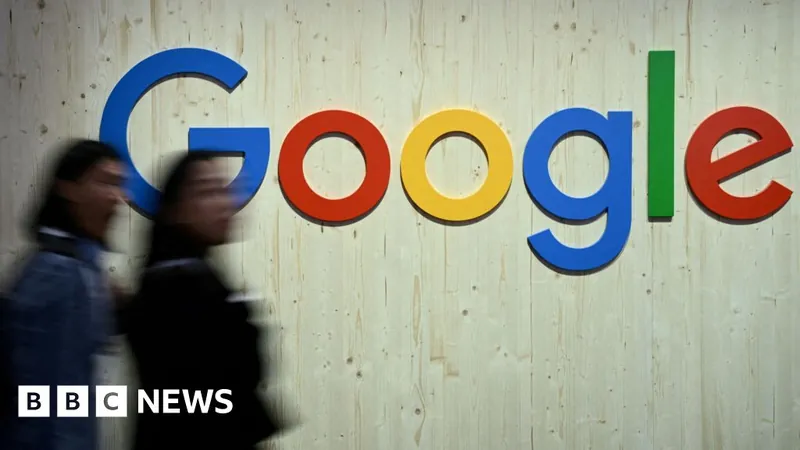
Google Embraces the Future: Nuclear Energy for AI Data Centres!
2024-10-15
Author: Jessica Wong
In a groundbreaking move, Google has announced a partnership with Kairos Power to integrate small nuclear reactors as a power source for its rapidly expanding artificial intelligence (AI) data centres. This revolutionary deal marks a significant step towards clean and reliable energy to meet the escalating demands of AI technologies.
Starting this decade, Google plans to bring its first nuclear reactor online, with further reactors expected to be operational by 2035. While specifics regarding the financial aspects of the deal and the locations of these plants remain undisclosed, the implications for the tech industry are monumental.
“As we scale up AI capabilities, the electricity grid must evolve,” stated Michael Terrell, Google's senior director for energy and climate initiatives. “This partnership not only fast-tracks the development of a cleaner energy source but also maximizes the potential of AI in a sustainable manner.”
Kairos Power's executive Jeff Olson added, “This collaboration is critical for advancing the commercialisation of cutting-edge nuclear technology, showcasing its feasibility to decarbonise our energy grids.”
Before this ambitious plan can move forward, it must receive approval from the US Nuclear Regulatory Commission and relevant local agencies. Notably, Kairos Power recently secured the first permit in fifty years to construct a new type of nuclear reactor in California, and has initiated the construction of a demonstration reactor in Tennessee.
As the tech sector seeks to reduce its carbon footprint while combating an expected surge in energy consumption—predicted to more than double by the end of this decade, based on Goldman Sachs’ analysis—nuclear energy has emerged as a potent solution. John Moore, an industry editor for TechTarget, emphasized the energy-intensive nature of AI data centres, explaining, “These facilities require substantial electricity to function and to keep sophisticated hardware cool.”
In addition to Google's venture, other tech giants are also exploring nuclear power. Microsoft has recently made headlines by reviving operations at the notorious Three Mile Island energy plant—the site of the 1979 nuclear accident—while Amazon is set to acquire a nuclear-powered data centre in Pennsylvania.
Meanwhile, during the recent United Nations Climate Change Conference, the US joined a coalition aiming to triple its nuclear energy output by 2050 as part of the global shift away from fossil fuels. However, the nuclear path is not without its detractors, who point to inherent risks and the issue of long-lasting radioactive waste.
With this innovative partnership, Google’s move towards nuclear energy signifies a pivotal turn in how the tech industry addresses its energy challenges, showcasing a confident march into a sustainable future. Tech enthusiasts and environmental advocates alike should keep an eye on how this partnership unfolds, as it could redefine the landscape of energy consumption in the AI realm!


 Brasil (PT)
Brasil (PT)
 Canada (EN)
Canada (EN)
 Chile (ES)
Chile (ES)
 España (ES)
España (ES)
 France (FR)
France (FR)
 Hong Kong (EN)
Hong Kong (EN)
 Italia (IT)
Italia (IT)
 日本 (JA)
日本 (JA)
 Magyarország (HU)
Magyarország (HU)
 Norge (NO)
Norge (NO)
 Polska (PL)
Polska (PL)
 Schweiz (DE)
Schweiz (DE)
 Singapore (EN)
Singapore (EN)
 Sverige (SV)
Sverige (SV)
 Suomi (FI)
Suomi (FI)
 Türkiye (TR)
Türkiye (TR)